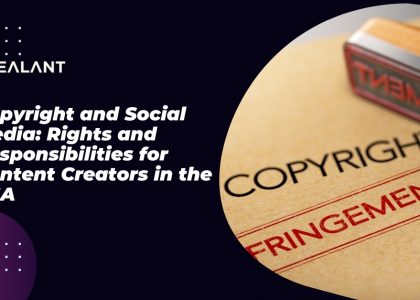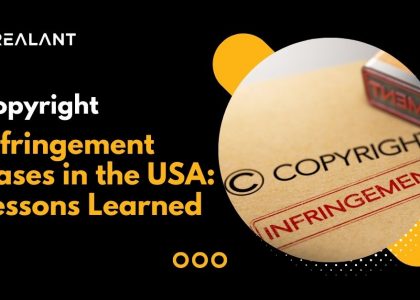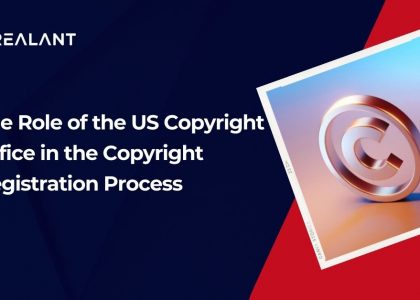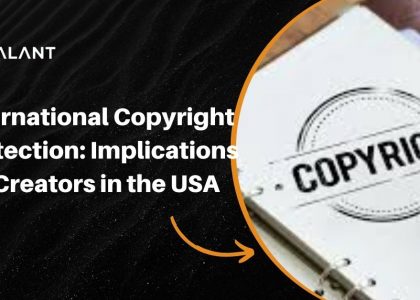If you want to protect your creative intellectual properties and prevent others from infringing your work, it is essential to register a copyright with the USPTO (United States Patent and Trademark Office). Infringement refers to using one’s copyrighted or trademarked property without obtaining legal permission or license from the property owner. If someone tries to or infringes your copyright without your permission, the USA follows some legal remedies to bring back your rights on your copyright. In this article, we will learn more about copyright infringement and remedies followed in the USA against copyright infringement.
Copyright Infringement and Remedies- Explained
If anyone tries to use, sell or modify someone else’s copyrighted art or property without the owner’s permission, it results in copyright infringement. Not only directly using the copyrighted work but reproducing or deriving it in other ways also lead to infringement. If the copyright owner finds any infringement of his work, he can file a lawsuit against the infringing party. He can also ask for remedies that compensate for the losses created because of the infringement. Let us discuss the copyright infringement and remedies followed in the USA.
Copyright Infringement Remedies
Suppose a copyright owner finds someone infringing his work. In that case, he can raise a complaint in the federal court or the (CCB) Copyright Claims Board (a federal court’s alternative for solving copyright infringement-related issues). To file a copyright infringement lawsuit against an infringer, the plaintiff should provide the evidence for his ownership over copyright and prove that his work is infringed by the defendant (infringer). Let us look at the various remedies the federal court and the CCB provide for copyright infringements.
- Preliminary or Permanent Injunction: The first-ever remedy a plaintiff would ask after an infringement is an injunction from the Federal Court. If a plaintiff requests an injunction, the Federal Court grants a preliminary injunction stopping further usage or selling the copyright when the lawsuit is in progress. Once the copyright infringement is confirmed, the court will grant a permanent injunction stopping further infringements permanently. However, the CCB cannot grant an injunction unless the party agrees to discontinue the act.
- Impoundment of Infringed Products: During the period of the lawsuit, the Federal Court can order the Impoundment or Destruction of the products or goods and their copies that are infringed without the copyright owner’s consent.
- Money Damages and Profits: If the copyright owner has already registered his copyright with the USPTO, he can ask for compensation and profits from the infringed goods from the infringer. The actual damages amount is defined by the losses the copyright owner faces due to the infringement plus the profits attained by the infringer. The Copyright Act determines the statutory damages to recover the damages faced during the infringement. They may range from $200 to $150,000 per infringed good, depending upon the willingness of the infringement. The CCB can also grant damages and profits to the copyright owner, depending on the damage type (actual or statutory damage) he chose. The actual damages at the CCB cannot exceed the limit of $30,000, and the statutory damage ranges between $200 and $15,000 per infringed good.
- Attorney Fee and Court Cost: If the plaintiff (copyright owner) filed an infringement lawsuit against someone, he can demand the court costs and attorney fee from the defendant (infringer) in certain cases. For this recovery of fees, the copyright owner should have registered their copyrights and maintained their deadlines for renewal. Generally, CCB doesn’t grant attorney and court fees but can be claimed when the defense is improper, without a valid reason, or the prevailing party fails to participate.
- Criminal Offenses and Penalties: Suppose the Federal Court finds that an infringement is made on purpose and for the profits or reproduction of the copyrighted work made for more than $1000 worth within 180 days. In that case, it is considered a criminal infringement of copyright. And the Federal Court grants imprisonment for up to 5 years and a fine of up to $250,000 to the infringer.
To Sum Up
From the above discussion, you now understand copyright infringement and remedies followed in the USA. If anyone tries to infringe a copyrighted work, the actions mentioned above will be taken against the infringer. And if the infringement is willful and intended to gain profits, it will be considered a criminal offense, and the consequences are as discussed above. Also, the copyright owners should have registered their copyright to the Copyright Office to claim all these remedies in case of infringements.
If you want to successfully register your copyrights to the USPTO and need assistance from the first step to the last, contact Brealant immediately! We are an Intellectual Property services organization, helping people protect their rights to their valuable intellectual properties.





